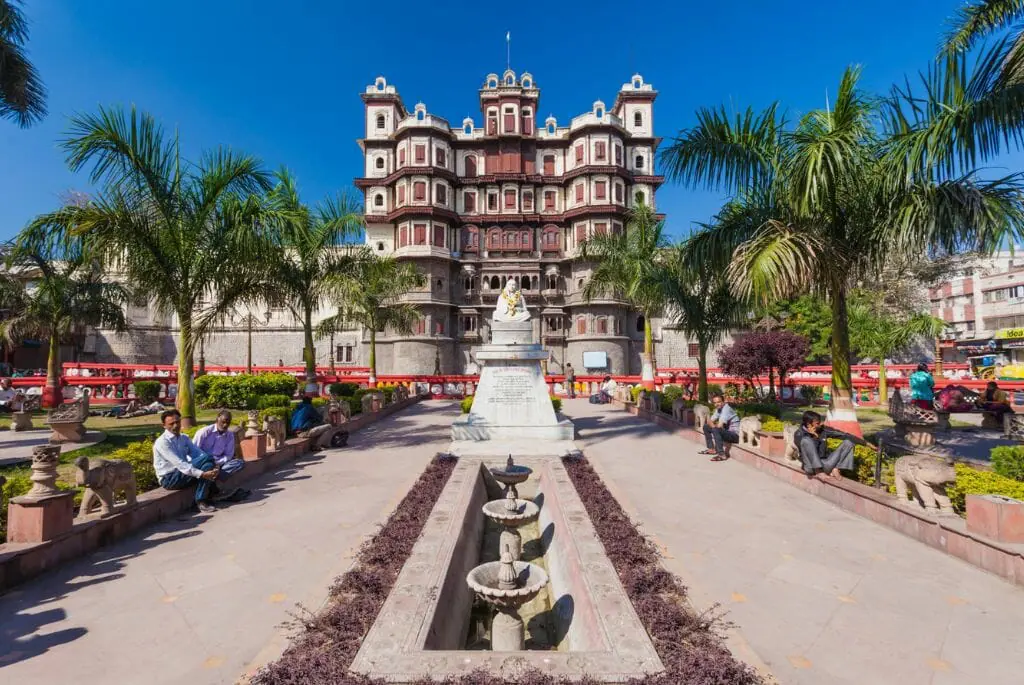The realm of Indian cinema, rich in its storytelling traditions, has witnessed the burgeoning of best Indian gay movies, a genre that not only entertains but also initiates crucial dialogues and challenges societal norms. These films are not mere reflections of life; they are beacons that illuminate the path toward a more diverse and accepting society.
In the vast expanse of India, from the vibrant streets of Bangalore to the historic allure of Chennai, from the technological hub of Hyderabad to the cultural richness of Ahmedabad, and amidst the lush greenery of Pune, the best Indian gay movies find their voices. These cities, each a microcosm of India’s diversity, provide a backdrop to narratives that delve deep into the heart of LGBTQ+ experiences, interweaving the threads of love, identity, and culture in a society as layered and complex as India.
Each of these best Indian gay movies is a journey through uncharted territories of Indian cinema, redefining and reshaping the portrayal of LGBTQ+ characters and stories. They are not just films; they are bold statements that celebrate diversity and foster understanding. From the thought-provoking dialogues that spark self-discovery to the visually stunning portrayal of India’s diverse landscapes, these movies stand as powerful testaments to the transformative influence of storytelling.

In celebrating the best Indian gay movies, we delve into a world where artistry meets activism, a world that paints a hopeful picture of inclusivity and acceptance. Each film is a gateway to the vibrant and multifaceted LGBTQ+ community of India, offering a glimpse into lives that resonate with authenticity and empathy.
So, immerse yourself in the captivating world of the best Indian gay movies, where every frame is a canvas of passion and every story a bridge towards a more empathetic and inclusive future. These films are not just cinematic achievements; they are milestones in the journey towards a more understanding and diverse India, showcasing the indomitable spirit of love, acceptance, and the human desire to be seen and heard.

Wondering where to watch? It depends on where you live in the world and which streaming services you have. We link to the streaming service we watch on in each case - be it Netflix, Amazon Prime, Apply TV+, or elsewhere.
You can get one month free of Amazon Pride (or a 6-month trial for students) of Amazon Prime and also get immediate access to FREE Two Day shipping, Amazon Video, and Music. While you won't be charged for your free trial, you'll be upgraded to a paid membership plan automatically at the end of the trial period - though if you have already binged all these, you could just cancel before the trial ends.
Apple TV+ also has a one-week trial, and Hulu has a one-month trial (which can be bundled with Disney!). Another option might be using a VPN to access Netflix titles locked to other regions. Netflix is now available in more than 190 countries worldwide and each country has a different library and availability. US Netflix is (understandably) one of the best.
While we wish everything could just be in one place - for now, it seems these are the best streaming platforms to watch on.
In this article we will cover...
Fire (1996)
Released in 1996, Fire is a thought-provoking film directed by Deepa Mehta, a prominent Indian-Canadian filmmaker known for her explorations of social and cultural issues. Mehta’s career has been marked by a willingness to tackle challenging subjects, often sparking both acclaim and controversy. Fire stands as a testament to her bold approach.
The film revolves around the lives of two women, Radha and Sita, who find themselves trapped within the confines of a traditional Indian household in New Delhi. Married to two brothers in a patriarchal household, they both endure loveless marriages and oppressive societal norms. As their husbands prove emotionally distant, the women’s shared loneliness brings them closer together, forming an unspoken connection that evolves into a deep emotional bond.
Set against the backdrop of a conservative Indian society, Fire skillfully portrays the tensions between tradition and personal longing. The film captures the dichotomy of a nation in transition, navigating modernity while still bound by age-old customs. Mehta’s direction is characterized by its emotional nuance and a cinematographic style that enhances the palpable intensity of the characters’ struggles.
Fire is an evocative cinematic experience that prompts reflection on tradition, desire, and the universal quest for connection. Deepa Mehta’s deft direction and the film’s layered storytelling make it a compelling watch. For those seeking a film that explores the human experience in the face of societal conventions, Fire offers an exceptional viewing opportunity.
Margarita with a Straw (2014)
Margarita with a Straw is a poignant coming-of-age drama directed by Shonali Bose, an Indian filmmaker known for her ability to tackle sensitive subjects with a deft touch. Bose’s directorial career has been marked by a commitment to exploring human emotions and challenges in her films. Her filmography showcases an adeptness at weaving intricate narratives that resonate deeply with viewers.
The film’s narrative revolves around Laila, a young woman with cerebral palsy portrayed by Kalki Koechlin. The story follows Laila’s journey of self-discovery as she navigates the complexities of her relationships, sexuality, and aspirations. The plot takes the audience on an emotional rollercoaster as Laila embarks on a journey of personal growth, breaking societal norms and venturing beyond her comfort zone.
The film’s strength lies in its nuanced depiction of Laila’s challenges and triumphs. It challenges societal preconceptions about disability, sexuality, and identity, offering a fresh perspective that encourages empathy and understanding.
Margarita with a Straw is a must-watch for its thought-provoking narrative, stellar performances, and the director’s insightful storytelling. The film invites viewers to reflect on their own perceptions of disability, sexuality, and self-discovery. Its emotional depth and relatable themes ensure an engaging cinematic experience that resonates long after the credits roll. Whether seeking a touching narrative, remarkable performances, or a fresh perspective on life’s challenges, this film offers a satisfying cinematic journey that is bound to leave a lasting impact.
Kapoor & Sons (2016)
Kapoor & Sons is a heartwarming Bollywood film directed by Shakun Batra. The director, known for his unique storytelling style, previously gained recognition with his debut film Ek Main Aur Ekk Tu (2012). With Kapoor & Sons, Batra delves into the complexities of family dynamics and relationships, presenting a narrative that resonates with audiences worldwide.
The film revolves around the Kapoor family, whose seemingly idyllic façade hides a web of underlying tensions and secrets. When two estranged brothers, played by Sidharth Malhotra and Fawad Khan, return to their hometown of Coonoor to visit their ailing grandfather, old wounds resurface and familial bonds are tested. As the brothers navigate their strained relationship, they are confronted with personal and professional challenges that lead to introspection and growth.
Set in the picturesque hill station of Coonoor, the film cleverly employs the serene surroundings as a backdrop to mirror the emotional landscape of the characters. The lush landscapes and tranquil ambience provide a stark contrast to the emotional turmoil unfolding within the Kapoor household, emphasizing the complexity of human emotions.
Kapoor & Sons is a must-watch for its compelling narrative, heartfelt performances, and the relatability of its themes. Director Shakun Batra’s deft handling of complex relationships and the picturesque setting of Coonoor make this film a cinematic treat that resonates on both emotional and visual levels. Kapoor & Sons offers an enriching cinematic experience that is both entertaining and thought-provoking.
I Am (2010)
I Am is an Indian anthology film directed by Onir, an acclaimed filmmaker known for his thought-provoking narratives. Onir’s career has been marked by his commitment to addressing social issues and his unique storytelling approach. With films like My Brother… Nikhil and Bas Ek Pal, Onir has demonstrated his ability to delve into complex themes while maintaining a deep connection with his audience.
I Am is set in contemporary India and takes place in the cities of Mumbai and Kolkata. The stories unfold against the backdrop of these bustling urban landscapes, effectively capturing the diverse and vibrant essence of the two cities.
The film’s narratives intertwine seamlessly, each one delving into a different facet of human experience. From a woman struggling to overcome her traumatic past to a man confronting his suppressed sexuality, I Am explores the challenges of societal norms and personal choices. Through its characters and their journeys, the film highlights the complexity of human relationships and the search for acceptance in a society often plagued by prejudice.
I Am is a cinematic gem that not only challenges societal norms but also offers a profound reflection on the human condition. Its compelling characters and poignant storytelling make it a film that resonates on multiple levels. Onir’s deft direction and the film’s engaging narratives make it a powerful cinematic experience that prompts viewers to contemplate the complexities of identity, relationships, and personal freedom.
My Brother… Nikhil (2005)
My Brother… Nikhil is a poignant Indian film also directed by Onir, a filmmaker known for his thought-provoking narratives. The film stands as a remarkable achievement in Onir’s career, showcasing his ability to tackle sensitive subjects with a delicate touch.
The plot revolves around Nikhil Kapoor (played by Sanjay Suri), a successful swimmer living a content life in Goa, India, during the 1980s. However, his world is shattered when he is diagnosed with HIV/AIDS, a disease then fraught with stigma and misinformation. Set against the backdrop of a conservative society and the legal battles faced by those diagnosed, the film portrays the challenges of living with a stigmatized illness.
The film’s setting in Goa is integral to its narrative. The scenic beauty and laid-back lifestyle of the coastal state starkly contrast with the social prejudice and fear surrounding the AIDS epidemic. The juxtaposition of these elements adds depth to the story, effectively highlighting the struggles of the characters against the backdrop of a picturesque yet judgmental environment.
My Brother… Nikhil is an emotional journey that brings attention to the societal discrimination faced by those suffering from HIV/AIDS. The film succeeds in humanizing the characters and fostering empathy, challenging preconceived notions about the disease. The performances are exceptional, with Sanjay Suri delivering a heartrending portrayal of Nikhil’s resilience and his sister, played by Juhi Chawla, showcasing her unwavering support.
Bombay Talkies (2013)
Bombay Talkies is another anthology film directed by Karan Johar, Dibakar Banerjee, Zoya Akhtar, and Anurag Kashyap. Each director brings their unique storytelling style to the project, making it a captivating exploration of various emotions, relationships, and societal issues.
The film weaves together four distinct narratives, reflecting different aspects of life in Mumbai, India. Karan Johar’s segment follows a young man struggling with his identity and sexuality, while Dibakar Banerjee’s story delves into the life of a failed actor desperate to make a name for himself. Zoya Akhtar’s portion revolves around a young boy who aspires to become a dancer, despite societal pressures. Lastly, Anurag Kashyap’s segment presents the tale of a man’s attempt to find fame through an unusual means.
Set in the bustling metropolis of Mumbai, the film effectively captures the city’s vibrancy and complexity. Each story showcases various facets of the city, from its glitzy film industry to its gritty underbelly, while highlighting the dreams, struggles, and aspirations of its diverse inhabitants.
Viewers are recommended to watch Bombay Talkies for its thought-provoking narratives, skilled direction, and exceptional performances by the ensemble cast. The film offers a poignant insight into the lives of individuals striving to chase their dreams in a city that is both enchanting and challenging. Bombay Talkies stands as a testament to the collaborative brilliance of four accomplished directors and their ability to craft a cohesive cinematic experience that is both captivating and emotionally resonant.
Nazar (2005)
Nazar is a captivating film directed by Soni Razdan, a renowned Indian filmmaker known for her thought-provoking narratives and keen exploration of human emotions. Throughout her career, Nazar has delved into intricate tales that often traverse the complexities of relationships and societal norms, earning her a distinct place in Indian cinema.
The film’s plot revolves around a haunting love story that intertwines with elements of mystery and psychological drama. The story follows the life of a young Indian woman named Divya (Meera Jasmine), who finds herself caught in a web of intense emotions when she falls for a suave and enigmatic British man named João (Ashmit Patel). Set in the picturesque landscapes of Portugal, the film takes full advantage of its backdrop, seamlessly weaving the scenic beauty into the narrative’s emotional fabric.
Nazar captivates the viewer with its evocative storytelling and outstanding performances. Meera Jasmine and Ashmit Patel deliver compelling portrayals that bring authenticity to their characters’ emotions and conflicts.
For those seeking a thought-provoking cinematic experience, Nazar proves to be a compelling choice. Its exploration of love, cultural dynamics, and psychological complexities leaves a lasting impact. Soni Razdan’s adept direction, coupled with the film’s powerful performances and mesmerizing setting, makes Nazar a must-watch for enthusiasts of both romance and psychological drama. Prepare to be immersed in a tale that navigates the intricacies of the heart and mind against the backdrop of Portugal’s scenic splendor.
The Pink Mirror (2003)
The Pink Mirror, an Indian film directed by Sridhar Rangayan, occupies a unique place in the realm of cinema due to its exploration of themes surrounding gender identity and sexuality. Sridhar Rangayan, a prominent LGBTQ+ activist and filmmaker, has dedicated his career to shedding light on the struggles and stories of the queer community in India. The Pink Mirror stands as a significant milestone in his filmography, effectively blending humor with social commentary.
Set against the backdrop of contemporary Mumbai, the film delves into the lives of two transgender individuals, Kamini and Jay, played by actors Ramesh Menon and Edwin Fernandes, respectively. The plot revolves around their experiences as they navigate societal norms and expectations while striving to find acceptance and love.
Mumbai, a vibrant and diverse metropolis, is portrayed as a complex urban landscape that mirrors the multifaceted lives of its inhabitants. The film captures the essence of the city’s bustling streets, as well as the intimate spaces where Kamini and Jay confront their personal journeys. Through its visuals, The Pink Mirror serves as a poignant reflection of the urban milieu’s myriad emotions and struggles.
The Pink Mirror is a powerful cinematic experience that defies conventions and challenges prejudices. The director’s empathetic approach to storytelling, combined with his commitment to representing marginalized voices, elevates the film beyond its narrative. Its humor serves as a bridge that allows audiences to engage with profound subjects that are often considered taboo.
Aligarh (2016)
Aligarh is a poignant Indian film directed by Hansal Mehta. Mehta, known for his ability to explore complex human emotions, has carved a niche for himself in the Indian cinema landscape. His directorial ventures often delve into thought-provoking themes, and Aligarh is no exception.
The film is based on a true story and centers around the life of Dr. Shrinivas Ramchandra Siras, a respected professor of Marathi at Aligarh Muslim University. The plot takes an intimate look at his life when he is caught in a controversial situation that challenges his personal and professional integrity. Dr. Siras, portrayed by Manoj Bajpayee, faces severe discrimination and intrusion into his private life due to his sexual orientation.
Set in the city of Aligarh, Uttar Pradesh, the film meticulously portrays the socio-cultural landscape of the place. The conservative milieu of Aligarh becomes a character in itself, shaping the events and emotions of the story. The film paints a vivid picture of the struggles faced by individuals who do not conform to societal norms in smaller towns, where acceptance of non-heteronormative identities often lags behind urban areas.
Aligarh urges viewers to confront prejudice and discrimination, fostering greater understanding and empathy for the struggles of marginalized individuals. It’s a film that resonates beyond its immediate story, encouraging important conversations about acceptance, identity, and human rights.
Break Ke Baad (2010)
Break Ke Baad is a romantic drama film directed by Danish Aslam. The director, known for his affinity towards contemporary themes and relatable storytelling, marked his directorial debut with this movie. Aslam’s ability to infuse youthful charm and modernity into his narratives is evident in Break Ke Baad, making it a notable addition to his filmography.
The film revolves around the lives of childhood friends Abhay Gulati (played by Imran Khan) and Aaliya Khan (played by Deepika Padukone). Aaliya is an aspiring actress who is determined to break free from societal norms and pursue her dreams. Abhay, on the other hand, is more grounded and supportive of Aaliya’s ambitions. However, their relationship takes a turn when Aaliya decides to go abroad for further studies, leading to a ‘break’ in their relationship.
Break Ke Baad is a heartwarming exploration of love, ambition, and self-discovery. It portrays the complexities of relationships in a relatable manner, and the chemistry between the lead actors adds authenticity to their characters. With its engaging narrative, picturesque locations, and a dose of humor, the film offers an enjoyable cinematic experience.
If you’re a fan of modern romantic dramas that delve into the intricacies of human relationships and personal growth, Break Ke Baad is a movie worth watching. It presents a refreshing take on love and individual aspirations, making it a relatable and enjoyable choice for movie enthusiasts of various tastes.
Loev (2015)
Loev is an Indian drama film directed by Sudhanshu Saria. This marks Saria’s directorial debut, showcasing his adeptness in capturing intricate human emotions and relationships.
Set against the vibrant backdrop of Mumbai, Loev delves into the complexities of human relationships, focusing primarily on the bond between its two male protagonists, Sahil and Jai. The film takes a poignant approach in portraying their tumultuous past and evolving connection as they embark on a weekend trip to the scenic Western Ghats. As the narrative unfolds, their personal histories and unresolved tensions resurface, prompting them to confront their true feelings for each other.
Loev is a remarkable cinematic endeavor that delves deep into themes of love, companionship, and self-discovery. It offers a refreshingly honest portrayal of same-sex relationships in a societal context that often struggles with acceptance. The film’s understated yet compelling performances, coupled with its evocative storytelling, make it a captivating watch.
For those seeking a thought-provoking cinematic experience, Loev comes highly recommended. Its unique take on relationships, combined with its skillful direction and well-defined setting, offers a rare glimpse into the intricacies of human connection.
As the film navigates the complexities of love and friendship, viewers are invited to reflect on their own emotional landscapes and the challenges of genuine self-expression. Loev stands as a testament to Sudhanshu Saria’s directorial prowess and his ability to bring depth to the silver screen.
Unfreedom (2015)
Unfreedom is a film directed by Raj Amit Kumar, marking his directorial debut. Kumar, an Indian filmmaker and social activist, has a background in producing documentaries and short films that address societal issues. With Unfreedom, he brings his unique perspective to the world of feature films.
The film weaves together two narratives that explore themes of freedom, sexuality, and religion. One storyline revolves around Leela, a young woman in Delhi who struggles with her desires and faces the consequences of her choices in a conservative society. The other follows a professor named Fareed, who becomes entangled in a web of religious extremism and political unrest as he journeys from New York to Delhi.
Kumar employs a non-linear narrative style, interweaving the two plotlines to create a thought-provoking and engaging viewing experience. The film tackles sensitive subjects with a bold and unflinching approach, challenging conventional norms and inviting viewers to question their own perspectives on issues like sexuality and religion.
Unfreedom is a film that demands the viewer’s attention, offering a gripping exploration of social taboos and the struggle for personal freedom. Its unique storytelling, coupled with strong performances by the cast, makes it a compelling watch for those who appreciate cinema that pushes boundaries and ignites important conversations. If you’re seeking a film that challenges your preconceptions and provides a window into the complexities of contemporary society, Unfreedom is certainly worth your time.


